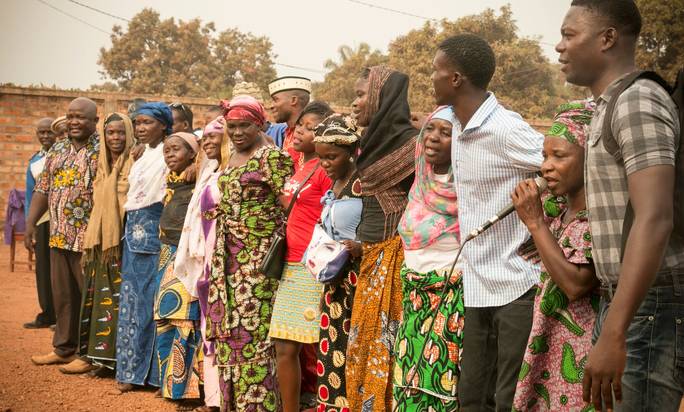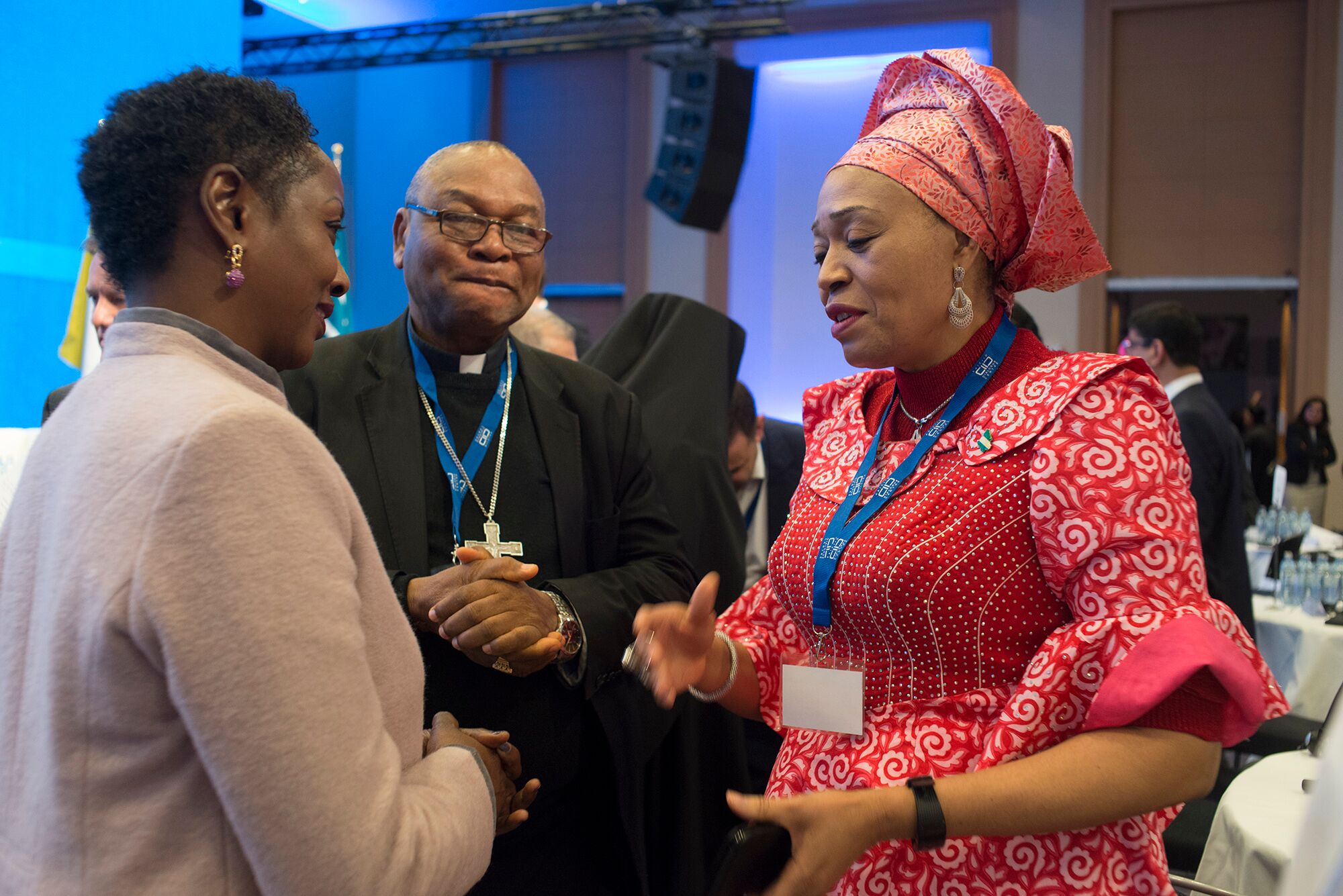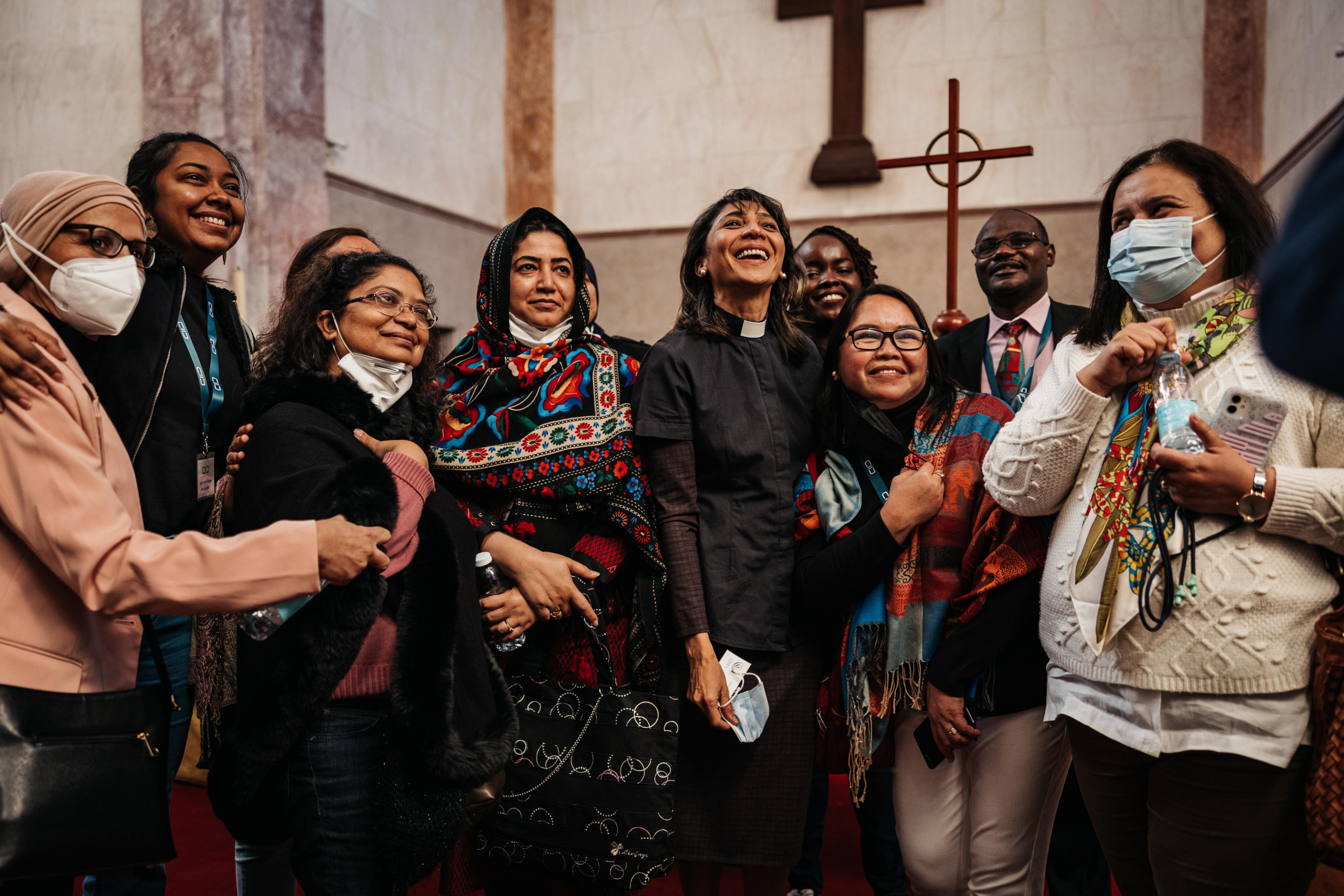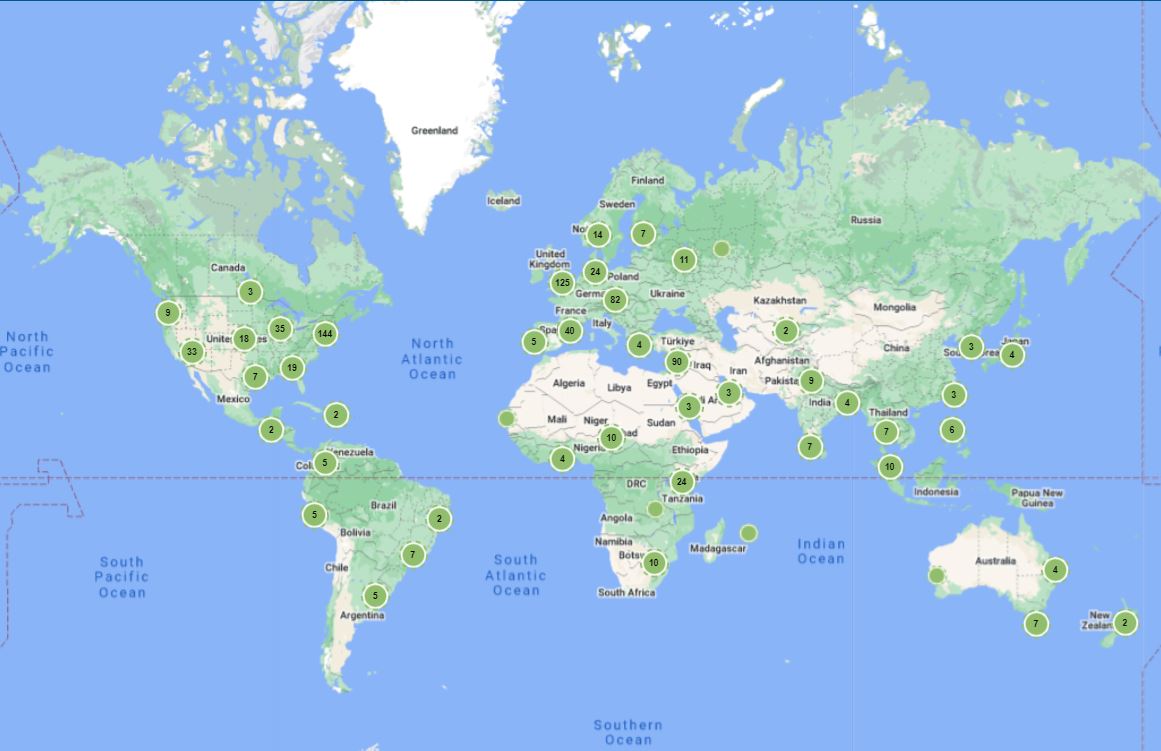Promising Practices
Promising Practices is a collation and expansion of existing documentation on promising practices in interreligious dialogue. Our database offers guidelines and focuses on the concrete implementation of interreligious and intercultural dialogue practices around the world.

Disclaimer:
Through providing different aspects and ideas our aim is to compliment the great work that has been already done in the field of Interreligious and Intercultural Dialogue. Information and field data published in this resource are for informational purposes only, and neither KAICIID nor the Dialogue Knowledge Hub guarantee in any way success of the implementation of the activity.
While we wish all the activities and initiatives featured in this resource could be replicable in as many context around the world as possible, there are often certain limitations, such as the suitability for particular cultures or religious communities. However, there is always room to explore and adjust activities in regards to the community’s environment.
- Guatemala
- Rwanda
- South Africa
- Sri Lanka
- Advocacy
- Capacity Building & Empowerment
- Confessional / Religious / Spiritual Activities
- Democracy
- Diplomacy
- Educational Programmes
- Freedom of Religion and Belief
- Human Security
- Humanitarian Aid
- Intercultural Dialogue
- Interreligious Dialogue
- Intrareligious Dialogue
- Networking
- Peace
- Pluralism
- Shared Human Values
- Social Cohesion & Citizenship
- Social Work & Community Service
- Youth
- Buddhism
- Islam
- Multireligious
Interfaith Conflict Mediation
Interfaith conflict mediation can take different forms, from democratic empowerment in post-conflict environments, to material exchanges and dialogue to reconcile. When a conflict arises between two protagonists that have cultural and religious differences, mediation has to be fair and objective; it should not favor one over the other. Intercultural Conflict mediation ensures that each perspective and belief are taken into account in the mediation process.
The Interfaith Democratic Empowerment is a program put in place by the religious leaders of a given country. They organize constitution reading workshops, debates, give their communities the judicial and advocacy tools to be active citizens in democracy building.
Interfaith material exchanges help establish a dialogue when it is hard for people to have verbal interactions with one another. Different religious communities can decide to work on a solidarity program with a specialized organization. These programs can take place through the year in villages or cities of religious communities or interfaith groups, to show that solidarity is a common value shared by all.
“Religions to Reconcile” uses religion as a means to reconcile and unite people. This initiative implements reconciliation in environments or countries where religious identities often oppose each other and engage in conflict, thus engages them to come together and build a better society.
- Lebanon
- New Zealand
- South Africa
- Turkey
- USA
- Capacity Building & Empowerment
- Confessional / Religious / Spiritual Activities
- Educational Programmes
- Freedom of Expression
- Freedom of Religion and Belief
- Interreligious Dialogue
- Intrareligious Dialogue
- Minority Rights
- Peace
- Pluralism
- Youth
- Christianity
- Islam
- Judaism
- Multireligious
Interreligious Course
Interreligious courses are an effective method to foster interfaith dialogue, as they educate. Different projects and pathways can be used to establish curricula and courses on interfaith coexistence, such as a national interfaith civic education. This can be formulated and organized by an interfaith organization that works closely with the education ministry of a given country to implement it. Through this unified national education curriculum, the youth are taught about understanding and accepting others’ beliefs, and that their citizenship entails a respect for all people regardless of their faith. Another project involves offering a year-long University course on interreligious issues, after which participants are awarded a diploma of interreligious affairs. The goal behind such a course is to inform students about our multi-religious world. This can be implemented in primary schools as well, through basic instructions on different belief systems and practices of their respective countries’ religions. Outside the school context, an educational activity can be conducted in parishes to bring together children of different traditions, such as Jewish and Christian faiths, on weekends to learn about the teachings of both religions. Other programmes and projects can offer a set of classes to learn about the history, development and contemporary practices of the world’s major religions. Such a program is designed for individuals seeking additional and informal education, and willing to participate in evening classes scheduled after work or university.
- Philippines
- South Africa
- Democracy
- Freedom of Expression
- Freedom of Religion and Belief
- Human Security
- Interreligious Dialogue
- Networking
- Peace
- Physical Infrastructure
- Social Cohesion & Citizenship
- Social Work & Community Service
- Christianity
- Islam
- Multireligious
Interfaith Consultation Network
Several religious leaders of majority and minority groups act as volunteer consultants for national institutions of a certain country or try to resolve conflicts between groups. The individuals and groups will be able to advice on how to approach their communities and transmit knowledge about cultures and traditions in their respective beliefs. Through this, bridges are built and contact among groups and between the executive and citizens becomes more trustful.
- Jerusalem
- Lebanon
- South Africa
- Tunisia
- Confessional / Religious / Spiritual Activities
- Democracy
- Humanitarian Aid
- Intercultural Dialogue
- Interreligious Dialogue
- Intrareligious Dialogue
- Peace
- Physical Infrastructure
- Pluralism
- Shared Human Values
- Social Cohesion & Citizenship
- Social Work & Community Service
- Christianity
- Islam
- Judaism
- Multireligious
Interfaith Care Institution
One or more religious communities and/or organizations join forces to build a care center with the aim of treating or taking care of sick people from all different faiths, with a commitment to also foster interfaith dialogue as part of its activities and services. This promising practice can also be done as an ‘add-on’ to existing care institutions. Caring for people regardless of their religion can build relationships and strengthen interfaith relations. The action is designed for any religious organization that has the capacity to found an institution especially considering that specialists/doctors are needed.
- Costa Rica
- India
- Peru
- South Africa
- USA
- Advocacy
- Capacity Building & Empowerment
- Confessional / Religious / Spiritual Activities
- Democracy
- Diplomacy
- Educational Programmes
- Environment
- Freedom of Movement
- Information Distribution
- Intercultural Dialogue
- Interreligious Dialogue
- Intrareligious Dialogue
- Networking
- Peace
- Physical Infrastructure
- Shared Human Values
- Social Cohesion & Citizenship
- Christianity
- Islam
- Judaism
- Multireligious
Environment Campaign
By organising an environmental campaign, whether through trips to a public space, creating eco-villages, or fasting for the climate, this practice can bring people of different religions and backgrounds together to unite around the same values. They get together to work on a project designed to take care of the environment and to raise awareness of and advocate for it. Depending on the needs, the practice can be organised by religious communities, NGOs, schools and/or any level of government, as well as by any committed individuals. By promoting environmental issues, this promising practice can inspire people to collaborate, work with each other against their differences, and be environmentally friendly, thus it increases interfaith awareness and creates a space to gather and protect nature.




